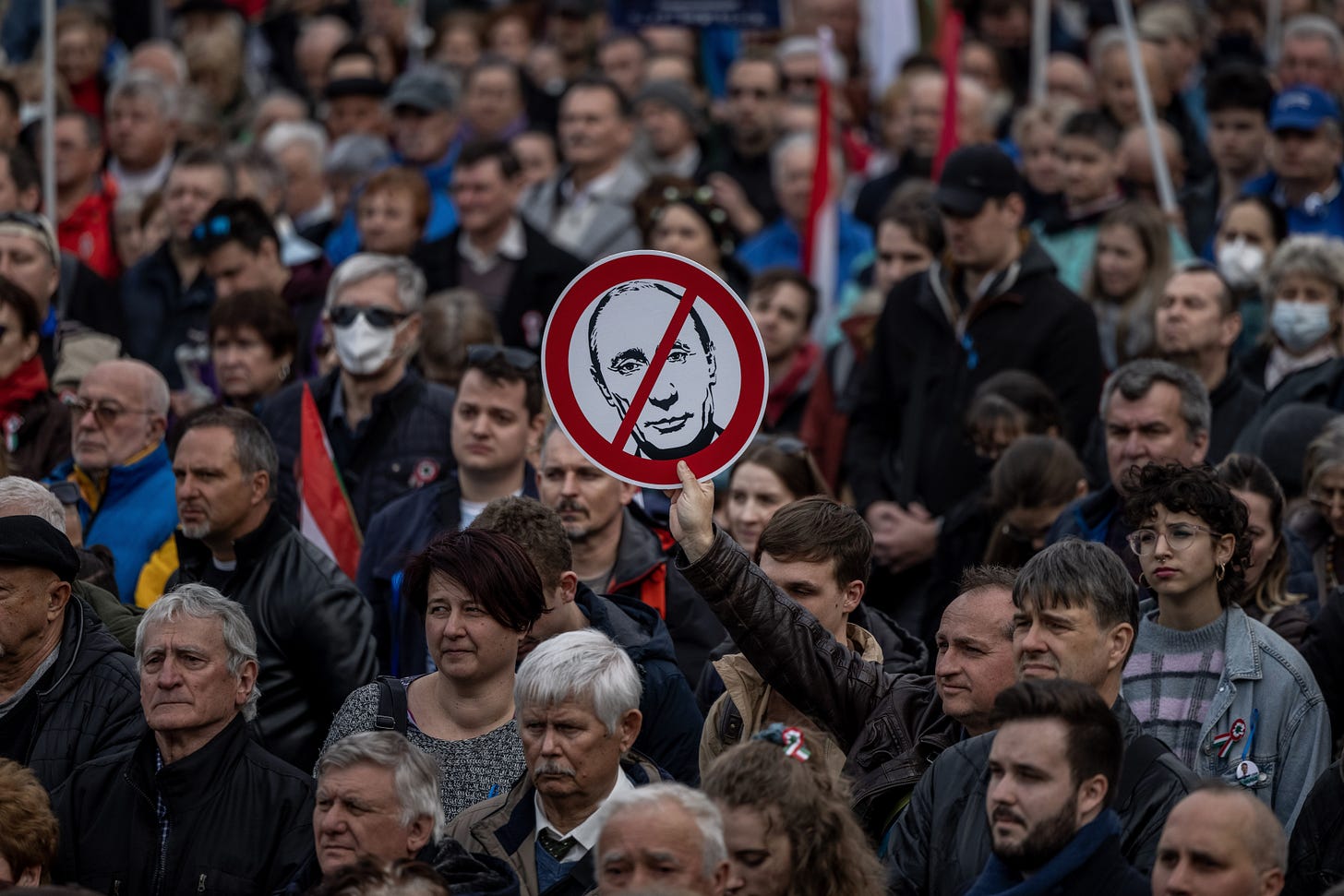A few days ago the Wall Street Journal had ten people (including myself) make predictions about Russia after Putin. Reading through the essays, it’s interesting how divided they are between pessimism and optimism. By my count five are positive about prospects for change (Volkov, McFaul, Kasparov, Kotkin, Knight), four are negative (Mearsheimer, Kimmage, myself, Soldatov), and only one — Angela Stent — is truly agnostic.
Maybe I’m being cynical but it’s hard for me to see a brighter future after Putin’s departure. Whoever replaces him, however well-intentioned, will inherit all of Putin’s problems but not his years of experience adjudicating among elite factions or manipulating the levers of the state. And I know it seems like anyone would be better than the current guy, but there are a lot of sociopaths walking around the Kremlin. If Putin is overthrown it will probably be done by members of the security elites, who may be even more hawkish in foreign policy and more willing to repress at home. The other outcome, total regime collapse, would likewise bring uncertainty, elite infighting, and the threat of mass violence.
The third outcome, dying in office, would make Putin the sixth national leader to do so since Lenin (along with Stalin, Brezhnev, Andropov, and Chernenko). Actually a surprisingly common form of exit given the volatility of Russian/Soviet politics. It’s not clear what this would mean in practice though. Now seventy, Putin has not named a successor, since doing so would officially make him a lame duck.
Naturally, no one wants to be seen as the successor for fear of being viewed as a challenger. But even if there’s an anointed replacement in the future, the lack of institutionalized succession means elite intrigue will follow. We know that the wishes of dying leaders are not always respected —see Stalin’s rise despite Lenin’s objections, or the appointment of Chernenko despite Andropov’s preference for Gorbachev.
However Putin leaves, in the absence of a succession mechanism there’s going to be some jockeying for supremacy. This is the great flaw of personalist autocratic regimes and one they just cannot seem to solve. The death or replacement of a ruler invites a crisis, and we cannot know in advance if the elite infighting that follows will be protracted and violent or brief and administrative.
In general, the consolidation of personalist rule has been a real problem for Russia and China over the past couple years. By concentrating power in private hands, personalist regimes breed corruption and undermine state capacity. They also, research shows, start more wars and create more misery for their people. A return of Brezhnev-like collective rule, while no panacea, could help curb those problems.
If autocrats ever figure out how to credibly sustain collective oligarchic rule without lapsing into pseudo-monarchy, democracy would have a real rival like it did with fascism and communism.1 It just doesn’t seem to be happening at the moment. The temptation to subvert collective rule is too strong. (That’s not to say it’s all rosy, there’s still the massive threat of internal democratic decay, even if viable competition from alternative regimes is lacking.)
In any case, it may not matter. Resentment toward the West, fear of encirclement, competition over influence in Eastern Europe and conflict over the global order — not to mention Ukraine of course — will remain huge obstacles for cooperation. Even if some kind of deal is made with Ukraine that suits all parties, the other problems are deep and geopolitical in nature, transcending the preferences or desires of any particular leader.
Collective rule may be better at managing these tensions but it will not eliminate them. In the end, I think it’s too convenient to treat Putin as an anomaly and to prophesize reform after his departure; making him into the main obstacle to progress is a nice-sounding myth.
Lenin’s great innovation, future historians might argue, will not be Marxism-Leninism but the modern one-party state, one that his successors have been unable to institutionalize.




